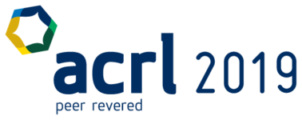Session Description:
Would you like to create videos for use in a flipped classroom library environment? Would it be helpful to incorporate real-time writing, videos, props, or slides in these videos? If you answered yes to both of these questions, consider making lightboard-based videos. This session will describe one institution’s use of lightboard technology for library outreach and a design-based first-year engineering class. Participants will leave understanding lightboard capabilities and best practices, and will brainstorm topics to make lightboard-based videos for use in their instruction sessions.
